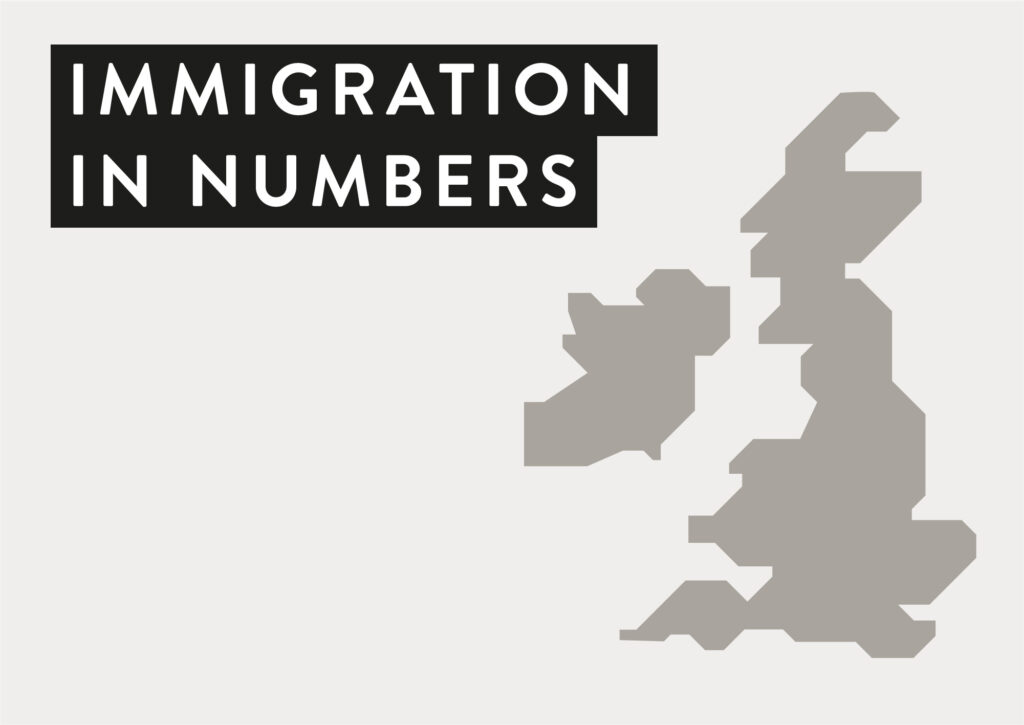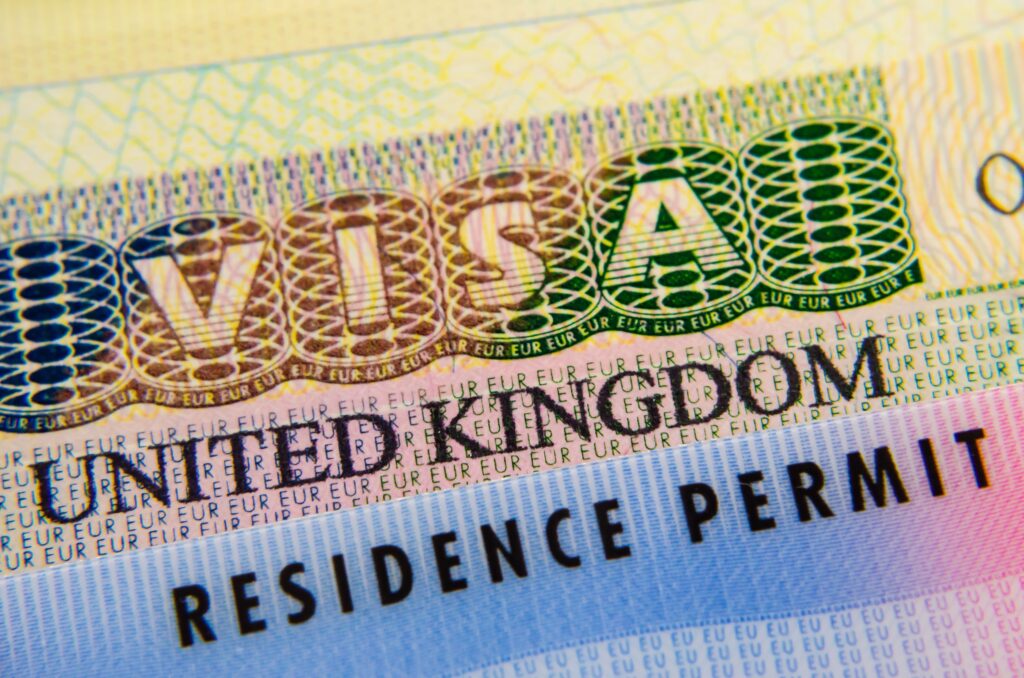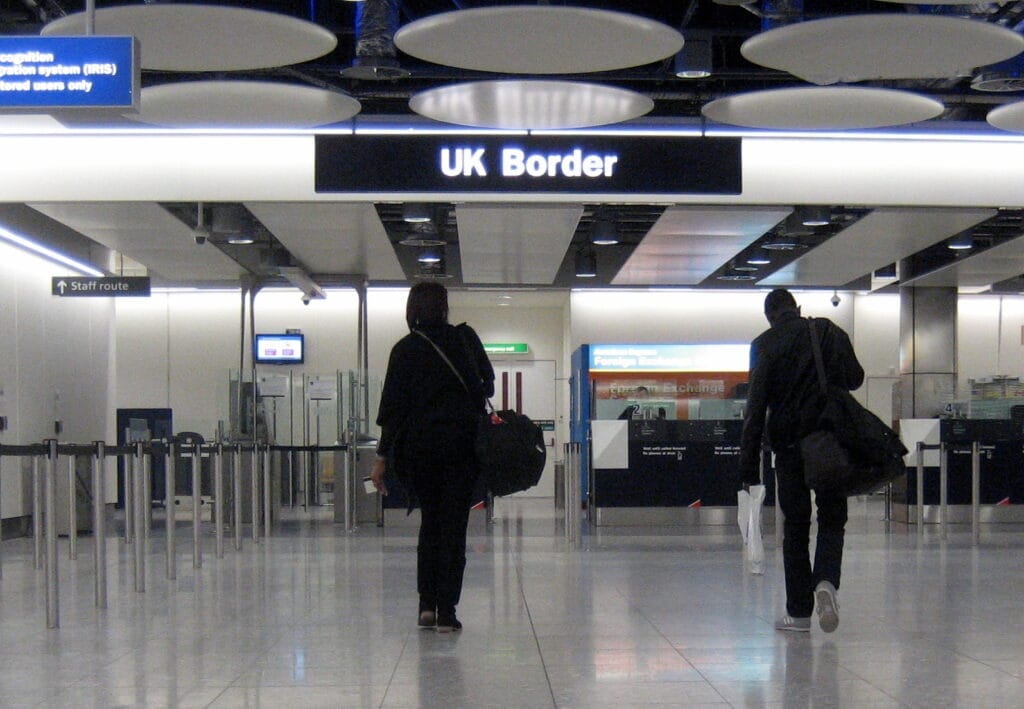Immigration in Numbers: Latest UK visa statistics
A total of 1.16 million UK visas were granted for work, study or family reasons in the year ending June 2024, according to statistics published by the Home Office last week.
The latest official migration statistics present detailed information on the number of people arriving in the UK under various visa categories, as well as those applying to extend their stay or settle in the UK, covering the period up to the end of June 2024.

These statistics are released quarterly and aim to inform the government, Parliament, the media and the wider public about the UK’s migration patterns, as well as providing insights to help shape future immigration policies.
This is the first quarterly release published under the new Labour government, and we therefore expect policymakers to consider these figures when making decisions on any immigration changes in the near future.
Prime Minister Keir Starmer and Home Secretary Yvette Cooper have both confirmed that the government is committed to bringing down net migration and will continue to support measures previously implemented by former PM Rishi Sunak such as higher salary thresholds for Skilled Workers and tighter rules on dependants for international students and care workers.
Overview of the numbers
In the year ending June 2024 there were 128.4 million passenger arrivals into the UK, 11% more than the preceding year. This number includes British nationals and people who do not require a visa to travel to the UK.
Of the non-British arrivals, most will be short-term arrivals such as visitors, with smaller numbers arriving for other reasons (such as work, study and family).
In this period, there were 3.4 million entry clearance visas granted, of which 62% were visitor visas. 1.16 million visas were granted for work, study or family reasons (including dependants), and 45,886 were granted ‘Other’ visas. ‘Other visas’ include settlement visas, temporary visas (excluding transit), EUSS family permits and some other family members coming to accompany others.
75,167 people were granted permission to come to the UK by safe and legal routes such as the Ukraine and BN(O) schemes, refugee resettlement and family reunion, whilst 38,784 people were detected arriving in the UK by irregular routes.
Work visas
In December 2023, the Home Office announced a set of policy changes, impacting who can apply for work visas, which came into effect at various points in 2024. It will be necessary to wait for future statistical releases to observe the longer-term impact of these changes on the number of people coming to the UK for work.
The latest release shows that 286,382 visas were granted to main applicants in all work categories in the year ending June 2024, 11% fewer than the previous year, but more than double (+109%) 2019 levels.
A notable fall was observed in the number of Health and Care Worker visas granted in the most recent quarter – down 81% between April and June 2024 compared with the same period in 2023. A total of 89,095 visas were granted to main applicants in this category during the year ending June 2024. This represents a 26% decrease compared to the previous year.
The number of grants to main applicants on other routes in the ‘Worker’ category (which includes Skilled Worker visas) has more than doubled since 2021, but in the latest year has fallen by 3% to 88,653.
The number of ‘Temporary Worker’ visas granted to main applicants in the year ending June 2024 was 77,419, with 34,332 grants for Seasonal Workers and 24,091 grants on the Youth Mobility Scheme.
There were 260,392 visas issued to work dependants in year ending June 2024, with ‘Health and Care Worker’ dependants alone accounting for 69% of the total.
Study visas
In the year ending June 2024, there were 432,225 sponsored study visas granted to main applicants, 13% fewer than in the year ending June 2023 but 61% higher than 2019. Two-thirds (65%) of student visas in the latest year were for masters level courses.
In the same period, there were 94,253 visas issued to student dependants, 39% fewer than the previous year but almost 6 times higher than in 2019.
The decrease in dependants of students followed a policy change for courses starting on or after 1 January 2024, whereby only researched-based postgraduate students are now allowed to bring dependants (partners and children) to the UK.
In the first 6 months following this change (January to June 2024) the number of sponsored study dependent visas granted fell by 81% compared to the same period in 2023, to 11,675. Over the same period, the number of main applicants granted a visa also decreased, by 23% to 82,367.
Policy changes are one of a number of factors that may have impacted visa application volumes and it will be necessary to wait for the peak in student applications for the next academic year (which usually comes in August/September) before we can see the full effect of policy changes and any other impacts.
Family visas
Family-related visas apply to persons wishing to live with family members who are British citizens or non-British settled migrants in the UK as part of their family. It also includes people wishing to join a relative with refugee status or humanitarian protection in the UK.
Family visa applications for the year ending June 2024 have reached their highest level in recent years, continuing an upward trend since the end of 2021. In this period, there were 98,906 family-related visa applications, reflecting a significant 40% increase compared to the previous year.
Statistics show that people arriving on family routes are also more likely to stay in the UK and apply for Indefinite Leave to Remain (ILR) than those arriving on work and study visas.
From 11 April 2024, the minimum income normally required to sponsor someone for a spouse/partner visa increased from £18,600 to £29,000. The impact of this change on the number of people coming to the UK on a Family visa will likely be observed in future statistical releases.
Visit visas
There were 2.1 million visitor visas in the latest year, 16% higher than the previous year.
During this reporting period, Indian nationals accounted for 25% of Visitor visas granted (530,587), with Chinese nationals accounting for 24% (507,883). The next largest visa nationalities were Turkish (7%), Nigerian (5%), Pakistani and South African nationals (both 4%).
Visitor visa grants have continued to increase post-pandemic but are still below their peak in 2019 (2.4 million). This difference is largely due to 134,699 fewer grants to Chinese nationals, but also 119,107 fewer grants to Saudi Arabians, who no longer required a visa to visit the UK from 1 June 2022.
The UK’s Electronic Travel Authorisation (ETA) scheme opened to Qatari nationals on 25 October 2023. From 1 February 2024, the scheme was extended to nationals of Bahrain, Kuwait, Oman, United Arab Emirates, Saudi Arabia and Jordan. To the end of June 2024, there had been 393,253 applications for ETAs and 388,021 grants since the ETA scheme started.
Settlement and citizenship
Indefinite Leave to Remain (ILR), otherwise known as settlement, allows you to live, work and study in the UK for as long as you like, and apply for benefits if you are eligible. You can use it to apply for British citizenship, after a certain amount of time.
In the year ending June 2024, there were 137,020 grants of settlement in the UK, 17% more than the year ending June 2023, (117,023). The number of people granted settlement each year will reflect the number of migrants coming to the UK in earlier years and policies regarding the length of time they are required to live in the UK before becoming eligible for settlement.
In the same period, there were almost a quarter of a million (246,488) grants of British citizenship, over a third (37%) more than the previous year (180,243). Whilst there has been a fluctuation in the number of citizenship grants since the year ending June 2015, the latest figures represent a continuing upward trend seen since the year ending June 2020.
Get the latest immigration news and views
To keep up to date with the latest news and rule changes in UK and global immigration, follow Smith Stone Walters on social media, or sign up to our free Immigration News Service to receive our weekly newsletter.















